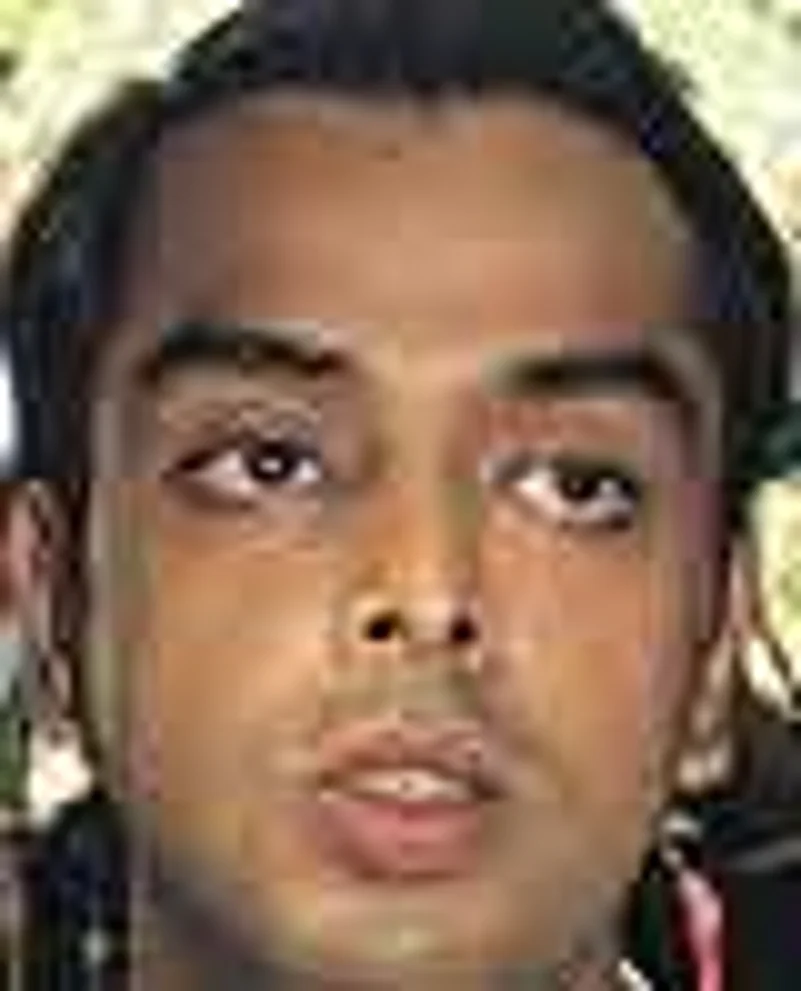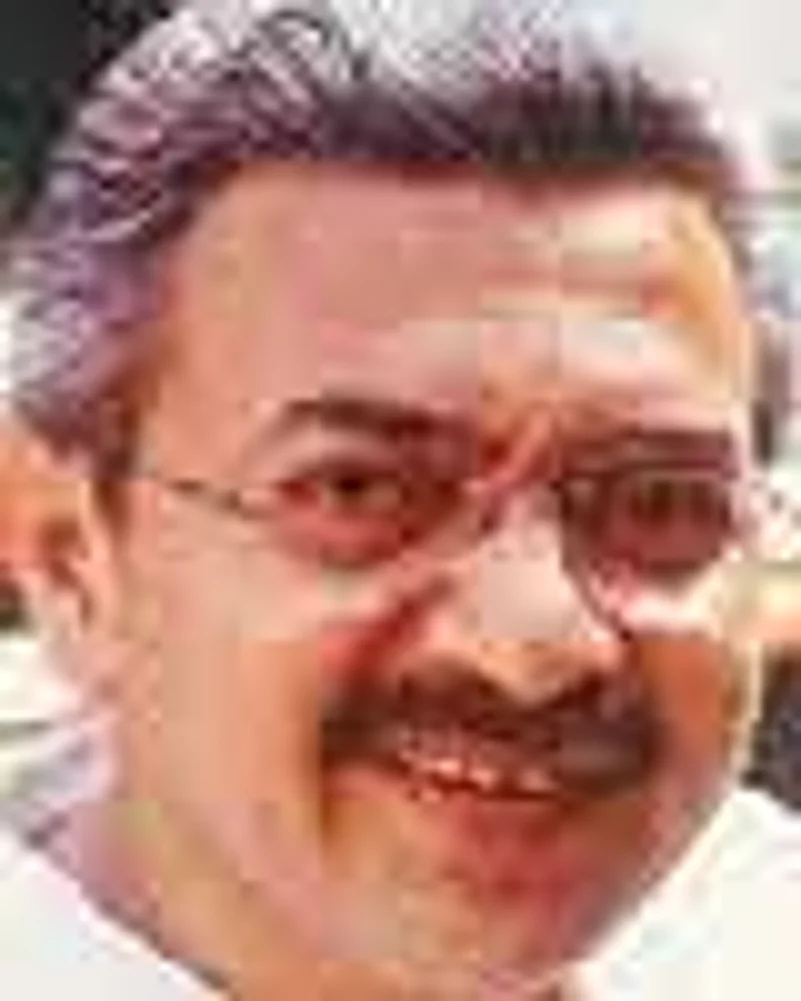Bombay
Shobhaa De
Writer, social commentator

"The uncouthness begins at the airport itself where some fifth-grade politician'scousin eight times removed will strut around with three attendants behind him and throwweight at the check-in counter. Delhi guys need one man to handle their cellphones,another to hold papers, a third to carry the overnighter. And here in Mumbai, even someonelike Ratan Tata walks by himself and checks in at the counter. That tells youeverything."
Gerson da Cunha
Theatre and ad personality, civic activist

"Delhi is all about power. Power wielded by individuals at will and for their ownexclusive benefit. Power flows from where you live and who you work for. Such is thespectrum of the power network that it tends to be used for the smallest of things, in amost irresponsible manner. That power is best typified by that man R.K. Dhawan, a typistwho basked in the glory of power and even ran the country for a bit. This would beunthinkable in Mumbai."
Milind Deora
Politician, rock musician

"I find Delhi a lot less diverse than Mumbai. It's still a North Indian city andshows the typical attributes of one. Maybe because of this lack of diversity andplurality, there's a lot less tolerance in Delhi and that extends to social and culturaltolerance. The creative space is probably as vibrant as in Mumbai but there's anunderlying sense of power play there, about who's in and who's at the top."
Bangalore
Girish Kasaravalli
Award-winning filmmaker

"I find Delhi very frightening. It has a very inhuman and arrogant look to it. I feelvery insecure when I walk on the deserted streets of Lutyens' Delhi. The indifference ofthe place rubs on you when you walk in front of those huge sarkari bungalows. I amgenerally good at topography, but in Delhi nothing registers. It is a strange place thatdoes not create a visual memory in my mind. I just can't read the place."
Kalyan Raman
Space scientist, telecom professional

"There is a void at the moral core of Dehi that is frightening. Even more than itsfearful aspect, its brutalising effect is all-pervasive. It is not just the dodgypoliticians but also that psychotic army of thin-faced, broad-belted, terylene-attired,bell-bottomed bad actors all over Central Delhi and visibly up to no good. These day-timemigrants come from the badlands surrounding the city, preferring anonymous crime and pettylarceny in the big city because they do not have the clout or the nerve to play the gameat home. From here to the very top, there is collective reinforcement of a nihilistspirit, of moral bankruptcy."
Calcutta
Amit Chaudhuri
Novelist

"The early '80s saw the beginning of the move to reinvent Delhi as a centre foreverything—academics, culture, the arts, trade and commerce et al.... Today, Delhi isengaged in an obsessive and 'un-self-critical' quest for power and I don't mean justpolitical power. What I find most disturbing about Delhi is that the so-called liberal andsecular class there is deeply hierarchical and non-egalitarian. The liberal, thinkingelite of Delhi is embedded in a self-perpetuating culture that does not encourage eitherdebate or introspection."
Jogen Choudhury
Artist

"I lived in Delhi for 15 years and I can say it has two distinct classes ofpeople—a cultured and refined minority and the vast, vocal majority which is brash,crass and vulgar. The latter class is made up almost entirely of migrants from Haryana,Punjab and western UP, parts of India that are not really known for their high cultural,social or academic standards. An auto driver or bus conductor will refer to a passenger as'tu' instead of 'aap'. It'll take Delhi another 50 years to become a Mumbai or Calcutta.Even the city's young people are imbibing this unfortunate culture: they're brash,money-minded, materialistic and vulgar. (But) Delhi's emergence as a centre for business,arts, academia and culture will act as a magnet for the elite from other parts of thecountry to gravitate towards the city, thus transforming it into a liveable one."
Madras
Theodore Baskaran
Historian, nature writer

"It is not the climate or the infrastructure that keeps me off Delhi. It is the humanfactor. In office buildings, before people can come out of the lift, you see a grouppushing to get in. This is symbolic of the Delhi ethos.... Their abysmal ignorance of theSouth confounds the situation. I did a one-year course in Delhi when the war in Sri Lankawas on; my coursemates thought that all the Tamils in Sri Lanka were immigrants from TamilNadu."
A.R. Venkatachalapathy
Historian, associate professor, Madras Institute ofDevelopment Studies

"Delhi disproves the popular Tamil saying, 'The way to Madurai is in your mouth'. Myroadside enquiries on Delhi's streets always resulted in the scratching of the balls andbeing shown the wrong way. Civility was sadly missing. Rudeness was the armour, aggressionthe primary form of engagement. So, I stayed cocooned in jnu which, compared to the bigbad city outside, was 'the heart of a heartless world, the sigh of the oppressed', untilit became the opium of intellectuals. The exile ended with the turning in of my doctoralthesis. I fled to Tirunelveli. But there was poetic justice. My wife turned out to be fromDelhi. The only point of discord in an otherwise blissful marriage!"
Hyderabad
Ananda Shankar Jayant
Well-known Kuchipudi and Bharatanatyam dancer

"The cultural czars and czarinas living in Delhi do not look beyond their city.Anything that happens in Delhi in terms of art is presumed to be of national import. SouthIndian artistes are doing brilliantly, but recognition comes only if one performs inDelhi, and in Delhi, it's not talent that counts but the right connections. Delhiaudiences always have this attitude of been there, seen that and done that. Audiences inHyderabad, or anywhere in the south for that matter, are much more receptive. And Delhi isthe most unsafe place for a woman. I would never take an auto, taxi or bus after 7.30 pm.In Hyderabad, I can travel safely on my own at 11 pm."
Iqbal Patni
Urdu and Hindustani Poet

"The culture of a society is governed by its geography and history. Delhi wasconstantly invaded from the northwest and the years of strife and war appear to have hadan impact on the people of Delhi. Often, South Indians are ready to adjust, but NorthIndians do not budge an inch. Maybe history also has something to do with the fact thatthe people of Delhi are so loud, superficial and flashy."
Inputs from Smruti Koppikar, S. Anand, Sugata Srinivasaraju, Madhavi Tata, JaideepMazumdar


























